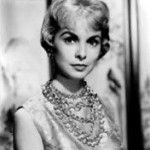Psycho/1960/Universal/109 min.
For a 51-year-old, “Psycho” looks fantastic.
The 1960 masterwork, perhaps the most famous of all Alfred Hitchcock‘s movies, is still smart, funny and beautiful to watch.
A low-budget, experimental film for Hitchcock (he was greatly influenced by Henri-Georges Clouzot’s “Diabolique” from 1955), “Psycho” wasn’t well received by critics. But the movie was a huge hit with the public and has remained popular ever since. Norman Bates, played by Anthony Perkins, is No. 2 on the AFI’s list of greatest villains, second only to Anthony Hopkins’ Hannibal Lecter. “Psycho” singlehandedly spawned the slasher genre and, together with Orson Welles’ “Touch of Evil” from 1958, also starring Janet Leigh, marks the end of classic film noir.
Leigh plays Marion Crane, a secretary at Lowery Real Estate in sunny Phoenix. On a whim, Marion leaves town with a load of cash – $40,000 from her firm’s client, wealthy good ole boy Tom Cassidy (Frank Albertson). She’s hoping it will pave her way to the altar with her delectable but debt-laden boyfriend Sam Loomis (John Gavin).
Not far into her road trip, she feels pangs of guilt, but before she can turn around and give the money back, she stops at The Bates Motel where she meets uber-polite proprietor Norman and hears his mother screeching from the old dark house next door. After sharing sandwiches with Norman, Marion takes a shower and Norman’s gray-haired mother suddenly appears, knife in hand. It’s one of the most iconic scenes in cinematic history.
Later, Sam, Marion’s sister Lila Crane (Vera Miles), and Detective Milton Arbogast (Martin Balsam) launch a search for Marion. Arbogast perishes as he puzzles over the secrets within the Bates Motel, but eventually Sam and Lila unravel the core of the family craziness. Here’s a hint: It was all Mommy’s fault. Still, she’s a survivor, you might say, who gets the last laugh.
Hitchcock took a chance with first-time screenwriter Joseph Stefano who worked from Robert Bloch’s novel “Psycho.” The book was loosely based, many feel, on real-life Wisconsin serial killer Ed Gein. Stefano, a psychoanalysis aficionado, borrowed liberally from Freud 101 to write his script. (Stefano later became the head writer for the classic TV horror show, “The Outer Limits.”)
Because he worried that the audience would get impatient with not seeing Norman’s mother for so long, Stefano peppered the dialogue with references to mothers so that at least the idea of Mrs. Bates was present. Sam refers to turning a picture of Marion’s mother to the wall; Marion’s office colleague Caroline (Patricia Hitchcock) mentions her mother twice in a brief conversation at the office.
Perkins’ portrayal of Norman Bates, bashful, boyish, complicated and eminently skilled at hiding his inner feelings, catapulted the actor into stardom but unfortunately branded him with an image he struggled to shed for the rest of his career. Perkins is superb, and it’s easy to see why Leigh was nominated for a best supporting actress Oscar.
In her short time on the screen, she delivers a performance that’s subtle and measured. When Norman says to Marion, “You’ve never had an empty moment in your entire life, have you?” she replies coolly, “Only my share.”
And yet, like Perkins, Leigh suggests depths of hidden passion in her character. Miles, Gavin, Balsam and the many supporting players all deliver top-notch work.
Perhaps more famous than any of the supporting actors is the shrill, spare score by Bernard Herrmann. Hitchcock’s music budget was downsized to an all-strings orchestra and Herrmann reportedly wanted to create a black and white sound to match the black and white photography. Additionally, key moments, such as Marion and Norman’s chat over sandwiches, take place in total silence and heighten the suspense.
Critics were harsh on “Psycho” when it came out – Time magazine called it “stomach churning” – but audiences flocked to see it and experts eventually embraced the movie. Current Time critic Richard Schickel notes: “History is less shocked by the doings at the old Bates place, appreciating Hitch’s masterful technique, the formal elegance of his style and, above all, the way he toys with some of his favorite themes – guilt, obsession and the wayward ways they drive us all.”
Universal owns all rights to “Psycho” video and images.










